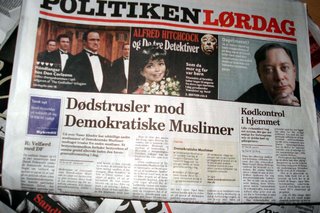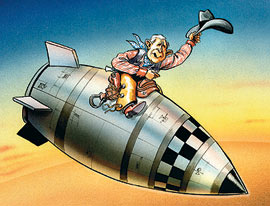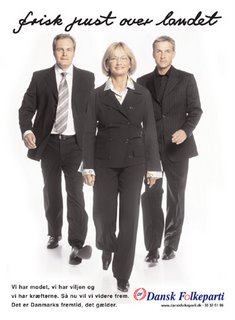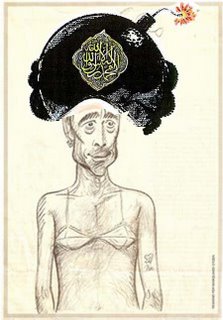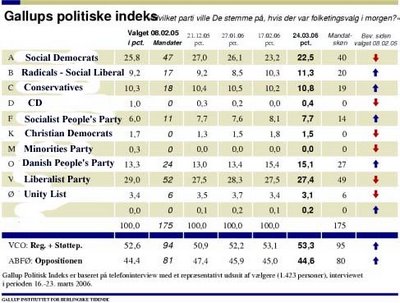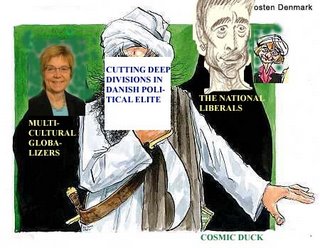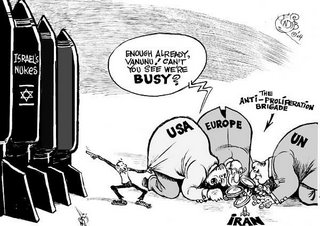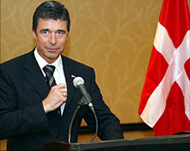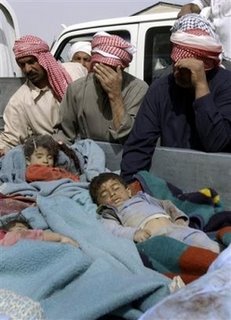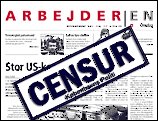Let our position be absolutely clear: An attempt by any outside force to gain control of the Persian Gulf region will be regarded as an assault on the vital interests of the United States of America, and such an assault will be repelled by any means necessary, including military force.
(Carter doctrine, State of Union Address 1980)Retired USAF lieutenant colonel
Karen Kwiatkowski has said:“Perhaps Lenin is another George Bush model. Lenin expected that Imperialism would be Capitalism’s highest stage, and clearly George Bush believes it. Lenin’s actions in 1918 were two-fold. He established "War Communism" at home to seize property, infuse domestic loyalty, and strengthen the federal state, along with a "Third International" to "promote world revolution according to the Russian communist model…The pattern fits. If you consider the philosophies and writings of his neo-conservative advisors, it begins to look eerily familiar. Lenin would approve”.
Can George W. Bush be compared to Lenin as suggested by Kwiatkowski? It’s an interesting thought. There are, however, big differences, not only between the two politicians' ideologies, but also between the "faces" of imperialism in the 20th and 21st centuries.
Unlike the conservative Bush, Lenin was a socialist revolutionary. He believed in the dictatorship of the proletariat as the precursor for a communist society without social class divisions. This thinking was a Marxist legacy. Lenin was, however, a Marxian vulgarizer. Marxism-Leninism is a vulgarization of classical Marxism. Lenin's theory of the communist party as a vanguard of the working class is un-Marxian. Marx saw revolution as the outcome of a revolutionary consciousness in the working class, - not an outcome of the work of an elite in an elitist party. Revolution might - according to classical Marxism - be expected in the most highly developed capitalist societies, not in an authoritarian peasant/landlord imperial state like Russia. When it happened in Russia it was because of the weakening of the country in the Ist world war.
Lenin saw imperialism as the highest stage of capitalism. Inspired by the British economist Hobson he saw the imminent threat of too much saving and hence under-consumption in advanced capitalism.
Furthermore advanced capitalism suffered from the falling rate of profit, according to the Marxist theory of capital accumulation and its consequences. In mature capitalism the composition of capital changes in such a way that the “dead” capital in the form of machines, buildings and raw materials takes preponderance over variable capital, labour, which in the Marxian scheme is the only part of capital that is capable of producing more value than that which is already embodied in it.
Unlike the neo-classical economists Marx did not see capital as “productive”. Therefore profit was not to be seen as the “just” return, a payment to capital for service rendered. Profit was the result of exploitation; it was capital as a social relationship in production. The capitalists were not capable in the long run of keeping the growth in profits high enough to compensate for ever increasing outlays for machinery and other productive inputs. Hence a falling rate of profit. The profit rate also might fall in the course of the business cycle when a relative shortage of labour might boost wages and thus the outlays for labour – or variable capital – that the capitalists had to make, hence leading to a falling profit rate.
The answer to underconsumption and the falling rate of profit was to convince politicians of the need to get colonies, to get markets for the over supply of goods and to increase investments to get a higher return on capital.
That explains the rush for colonies at the end of the 19th century. The most rapidly expanding European economy was a late-comer in this race. Germany was united by the strong chancellor Bismarck, and then the country got the fastest growing industrial economy, but it didn't get many colonies. This is what the theory of imperialism sees as an essential explanation of the world wars in the 20th century: There was no room for the strongest European economy to expand.
The causes of 21st century imperialism are not entirely the same. The USA has replaced Germany as the dominant capitalist power, - for the time being.
The dominant ideology is different however. It is no longer national socialism and expansion behind protective trade barriers and hence having a need of empire in the form of protected markets. The dominant ideology is economic freedom, democracy and free trade. Even though we can see there is a lot of hypocrisy whenever the dominant powers are threatened in their economic interests. The Chinese gave up acquiring Unocal in 2005, and Dubai ports renounced on the take-over bid of the 6 American ports after resistance in Congress.
Imperialism in the 21st century is also economically motivated. It is important to control the flows of oil and gas to maintain the standard of living characterised by big parts of the population driving in gas-guzzling SUV's and industries running on cheap oil. But apart from that the modern information economies are increasingly lightweight, based on the flow of information. Of course, it is only in the rich centre the economy is lightweight. It is so partly because the bulk of industrial production is outsourced to lower wage economies. In the poor countries they cough and develop lung cancer and asthma, whereas in the rich centre people enjoy the sophisticated life style in fitness centres and ecological cocktail lounges. In order to keep such an economy alive and vibrant it is necessary to keep information flows open on the internet. Therefore the US must maintain the control of the net through the distribution of and fixing of the standards of domain names and technical standards.
21st century imperialism is not based on colonization, at least not an open colonization by military suppression of the kind undertaken by the European powers. That is only the case in the few instances of "necessary" regime change, when countries do not face up to the responsibility of keeping markets open to multinationals. Otherwise power is exerted in a more discreet way in the World Trade Organisation.
It is important for the American empire to be able to print money in unlimited quantities. Therefore the dollars must be respected as the leading reserve currency. Countries that want to trade oil in other currencies, for instance euro, will not be popular. It may be necessary to effect regime change if such cheek be met with.
If there is not a general acceptance of the dollar it will not be possible for the USA to maintain its huge balance of payments deficit. Financing this deficit is made possible by the flow of investments into the US and by the the US having the option of playing central banker of last resort, that is printing money if necessary. That makes it possible to have huge military expenditures, and to reward close allies generously. The City of London is an important outpost of American economic imperialism. The giant British insurers and banks have important service tasks for American businesses. Even a small country like Denmark receives generous rewards in the form of shipping deals and defence contracts.
It is thought provoking that in the recently published
National Security Strategy, the passage of the text where the words get most specific and detailed is in the thinly veiled warning issued to China. Here is a new "Germany" arising in East Asia that may come to destabilise Pax Americana. A country that'll demand its share of global resources. The country is however not warned against taking its reasonable share of resources, but:
holding on to old ways of thinking and acting that exacerbate concerns throughout the region and the world. These old ways include:
Continuing China’s military expansion in a non-transparent way;
Expanding trade, but acting as if they can somehow “lock up” energy supplies around the world or seek to direct markets rather than opening them up – as if they can follow a mercantilism borrowed from a discredited era; and
Supporting resource-rich countries without regard to the misrule at home or misbehavior abroad of those regimes. .....
Ultimately, China’s leaders must see that they cannot let their population increasingly experience the freedoms to buy, sell, and produce, while denying them the rights to assemble, speak, and worship.The many violations of human rights in the USA are not mentioned, for instance the many blacks eking out hardship in prisons and on death row all over the country, or poor whites and Mexicans that eke out hard lives in poverty at the bottom of American society.
George W. Bush may be Lenin's ideal imperialist, but in the age of information capital and with a freely flowing international currency it is still the inequality of capitalism at home that strikes the observant eye.
